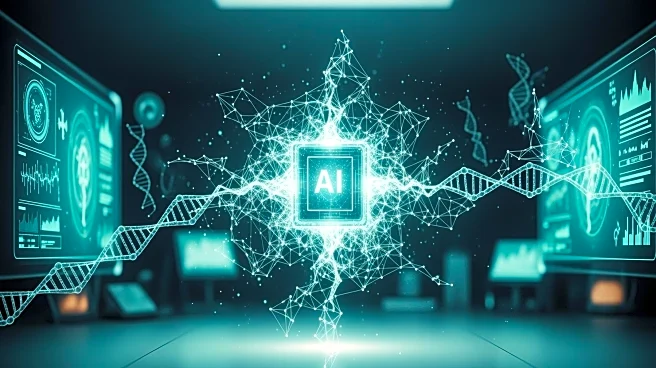What's Happening?
Astrin Biosciences, a cancer intelligence company, has developed an advanced AI model designed to detect early-stage cancer signals from proteins, potentially revolutionizing cancer detection and treatment.
The AI system analyzes over 9,000 proteins to identify molecular signals that traditional blood tests often miss, allowing for the detection of cancer at its earliest stages, even before tumor formation. This technology aims to understand cancer's onset, progression, recurrence, and potential fatality, offering a comprehensive approach to cancer care. The AI model not only detects cancer but also monitors how the immune system responds, providing insights into the aggressiveness of cancer and the likelihood of recurrence after remission.
Why It's Important?
The development of AI models for early cancer detection is significant as it addresses the challenge of identifying cancer at its most elusive stages. By detecting cancer cells in the bloodstream before tumor formation, this technology could lead to earlier interventions and improved patient outcomes. The ability to understand cancer's behavior and predict its progression could transform oncology, offering personalized treatment plans and potentially reducing mortality rates. This advancement highlights the growing role of AI in healthcare, showcasing its potential to enhance diagnostic accuracy and treatment efficacy, ultimately saving lives and reducing healthcare costs.
What's Next?
Astrin Biosciences plans to continue refining its AI model to improve detection accuracy and expand its application across various cancer types. The company aims to collaborate with healthcare providers and researchers to integrate this technology into clinical practice, potentially setting new standards for cancer diagnosis and treatment. As the AI model gains traction, it may prompt further research into AI-driven healthcare solutions, encouraging investment and innovation in the field. Stakeholders, including medical professionals and policymakers, will likely evaluate the implications of this technology on healthcare systems and patient care protocols.
Beyond the Headlines
The ethical implications of AI in healthcare, particularly in cancer detection, are profound. Ensuring data privacy and addressing potential biases in AI algorithms are critical considerations. The integration of AI into medical practice may also require regulatory adjustments and training for healthcare professionals. Long-term, this technology could shift the paradigm of cancer treatment from reactive to proactive, emphasizing prevention and early intervention. The cultural acceptance of AI-driven healthcare solutions will play a crucial role in their widespread adoption and success.










